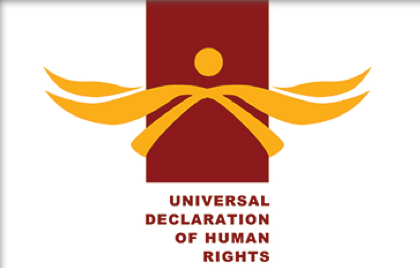case 1: account closure
Cashless banks have no vault and no cash services apart from the ATMs. ATMs in Europe never handle denominations smaller than €20. This means that even when you are closing an account at a cashless bank, the most you can pull out is a multiple of €20 from your balance. The bank expects you to open an account somewhere else first and transfer the remainder to the other account. This is to keep people trapped in the banking system.
It seems to violate article 17 ¶2:
- Everyone has the right to own property alone as well as in association with others.
- No one shall be arbitrarily deprived of his property.
This is not exactly up there with genocide and torture. It’s perhaps the smallest human rights infraction I can think of. But nonetheless, banks should be structured to comply with human rights no matter how trivial, no? It seems like even a cashless bank should (in effect) be required to keep some petty cash on-hand for account closures.
case 2: withdrawal limits
The same question applies for bigger cases. E.g. a bank (cashless or not) may have a daily withdrawal limit; weekly, and monthly too. Perhaps it is fair enough to have a fee or penalty for exceeding their limits, but if I understand correctly the bank has a human rights obligation to allow you to withdraw all your money. At the moment banks with limits simply refuse to execute withrawals that exceed their limits.
case 3: card refusal
ATMs and shops refuse people access to their money for countless arbitrary reasons.
- When a customer’s ID card copy on the bank’s files expires, some banks do not bother to inform the customer or request an updated copy. They just freeze the account. When money is denied, the customer magically presents themselves to the bank to find out why. Cutting off access to funds is the bank’s way of communicating.
- ATMs reject cards for undisclosed reasons. Sometimes a faulty AI bot falsely triggers and claims a transaction looks fraudulent. Sometimes ATMs are discriminating against people based on their origin (locally issued cards get a higher limit than foreign ones, but the ATM does not tell the customer what the limit is or why their transaction is denied).
I’m sure they’ll send you a check for the remainder.
Hopefully a bank order, otherwise you’re right back to needing another bank. And then you still have the issue of over-the-counter services coming with a fee.
Indeed, a banker’s draft almost always involves a fee. Though it’s possible that some high value accounts in places like the US would come with some perks like a few gratis banker’s drafts per year. Certainly it’s not the norm anywhere that I am aware of.
And from there, cashing the banker’s draft is a problem. @protist@mander.xyz is apparently thinking in terms of the U.S. case where there are (predatory) high-fee “checks cashed” shops all over, where at least you can get a check cashed. I think a European with a cheque is on shaky territory as it is – unlikely to get a cheque of any kind, and also unlikely to deposit one, and in if a European has no bank account it’s likely impossible for them to spend a cheque.
Okay, interesting. Apparently everywhere else in the world what I’m talking about is called a cashier’s cheque. I just meant the one that you can cash without an account because it’s guaranteed to clear.
In the US you can cash a check at many grocery stores for about $3. Banks have explicit policies in regards to shutting down accounts, have you looked into any of those, or is this all a thought experiment?
The premise of the question is when the bank refuses you access to your money, which manifests in a number of circumstances. Receiving a check from the bank is useful only in scenario 1, and only possible in parts of the world that still have checks.
You don’t have a human right to conversion of your property into a form that’s useful everywhere at any time, though.
When you deposit your money in the bank, you accept some form of limitation in accessing your funds, in exchange for convenience, security, utility and possibly interest.
This is all laid down in a contract, which you agree to.The bank isn’t depriving you of your property, you agreed to convert your cash into a legally binding right to access cash in the future, granted to you by the bank under certain circumstances.
The bank isn’t depriving you of your property, you agreed to convert your cash into a legally binding right to access cash in the future
It’s not one or the other. It’s both at the same time. Consumers are deprived of their property as a consequence of that agreement. The bank in case 1 currently says: to get your €19.99 back, either open another bank account or fuck off (in so many words).
From there, it comes down to whether you can sign away your human rights.
Your human right to $19.99 in the form of cash?
Get over yourself!If you see a value limit enshrined in the UDHR, feel free to quote it here.
It’s not about the value, dude. You aren’t deprived of your property, you still own that value.
But you don’t have a human right to have it converted into cash at your leisure (and the bank’s effort) whenever you please.Your argument is like buying gold for $20 and then complaining about human rights violations if the seller doesn’t buy it back for $20 whenever you wish.
If you want it now in cash, paypal it to a friend.
But you don’t have a human right to have it converted into cash at your leisure (and the bank’s effort) whenever you please.
When a consumer opts to close their account, the banking relationship can only be ended when the balance is zero (when neither party owes the other). You seem to be saying the UDHR does not entitle people to end the banking relationship at a time of their choosing, correct? In which case the banking relationship continues until the service fees eat away at the remaining balance, against the will of the customer. This is just another way to separate someone from their property.
Your argument is like buying gold for $20 and then complaining about human rights violations if the seller doesn’t buy it back for $20 whenever you wish.
Banking customers who open an account in the national currency have a reasonable expectation that the value of their account remain pinned to the value of the national currency. Exchanging that for a precious metal and having an expectation that value not decline would be absurd and I do not see how this analogy makes any sense.
I have two words for you: Slippery slope.
Human rights don’t have a reasonability limit. They’re inherent and inalienable. If it were $0.01 the problem would still be the same. A human rights violation is a human rights violation.
You don’t have a human right to conversion of your property into a form that’s useful everywhere at any time, though.
Sure, you don’t have an inherent right to any and all conversions of property to cash, e.g. real estate or shares. However, if a bank says you have xy of “Money” - the “legal tender” money, the “default”, “physucal” form of money, then a service for holding said money cannot withold it from you - that would make it not your money and that would make their service a fraud.
I’d draw exceptions on reasonable grounds - e.g. if a bank doesn’t work, they don’t have to offer a withdrawal service at the counter. Not allowing transfer into legal tender cash (since cash and credit are defined as equivalent) cannot be overly long or convoluted. That’d be depriving you of your property.
The “e-bank” should at least mail the money to you. It’s really not that hard. Ideally they’d partner with a traditional bank to allow such transfers. Or it could be codified as a basic inter-bank service.
Liquid property like this can get vague in a million different ways, you’ve barely scratched the surface. Like, literally all stocks are is a legal right to the proceeds of some enterprise, nothing more.
Law isn’t just decided based on the literal text, but also on what the implications of interpreting it a certain way would be. In English law this is called the golden rule: if an interpretation would lead to chaos and absurdity, don’t do that. Since we like having a financial system, I doubt the argument that “property rights” means everything must be made convertible to cash in every situation would hold water in any court. IANAL
Also consider that cash itself is a construct. The special legal status it has in many jurisdictions might offer a different route to defending it, though. Notes being “legal tender” means that you should in theory be able to pay cash at every establishment, for example.
I always interpreted legal tender not to be a mandate to accept that form of payment in general, but rather a formally recognized method for resolving debt in the event of legal dispute.
This depends on the country.
In the US: legal tender has different charactoristics depending on whether it is point of sale (PoS) or debt. W.r.t PoS, legal tender ensures the seller can accept it if they want, but have the option. W.r.t debts, legal tender entitles debtors to be able to use it for payment.
In Belgium: there is no distinction between PoS and debts. It’s as CanadaPlus says… Legal tender must be accepted either way. But there are some exceptions: if the seller and buyer are not in the same physical place at the same time, there is no obligation to accept cash. Sellers/creditors can also reject banknotes that are disproportionate to the transaction amount. The bizarre thing about Belgium is there are various circumstances where a debtor only has cash but a creditor can refuse it, e.g. if they have no physical presence. In practice it’s even worse because some business simply break the law by refusing cash, and it’s not enforced.
TIL!


